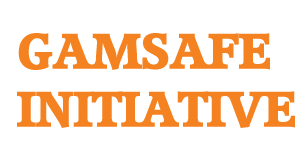FREQUENTLY ASKED QUESTIONS
Gaming Safe (GamSafe) is a non for profit organisation (RN: 184399) working to provide information & education on the harmful effect of unsafe gambling and underage gambling and to advocate for better policies to safeguard young and vulnerable persons from developing gaming/gambling related harms.
Gambling, as commonly understood, involves wagering something of value with the hope of gaining something more valuable, despite uncertain outcomes. It has existed for centuries as a form of entertainment, utilised by governments for revenue generation and supporting charitable causes. Whether betting on chance-based games like raffles, horse races, or online loot boxes, it entails a balance of risk and potential reward.
Responsible gambling involves individuals, communities, governments, and gaming industry players adhering to established principles and policies to ensure gambling activities are safe and fair. Its aim is to minimise the negative effects of gambling disorders while maximising economic benefits for all involved. This entails setting safeguards such as money and time limits, refraining from viewing gambling as a source of income, and avoiding borrowing money for gambling purposes. Responsible gambling is a collective effort involving stakeholders like government, gaming operators, regulators, treatment providers, community groups, and individual gamblers
A gambling disorder, also known as gambling addiction, or problem gambling encompasses behaviours that compromise, disrupt, or harm personal, family, or vocational pursuits.
You’re most likely to be addicted to gambling when you exhibit the following traits. Problem gambling is indicated by using gambling as a means of escaping life’s problems, losing interest in normal activities or hobbies, unsuccessfully attempting to stop gambling, chasing losses to recoup lost money, displaying an attitude of insatiability for winnings, feeling restless or irritable when not gambling, betting until one’s last resources are depleted, and losing interest in previously enjoyed activities. These signs collectively suggest the presence of a gambling addiction.
Underage gambling refers to the act of individuals who are under the age of 18 engaging in gambling activities. This practice poses significant risks to the well-being of children in our community. Studies have indicated that individuals with gambling disorders often develop drug and alcohol problems, are susceptible to criminal behaviour, and may experience mental health issues.
Children and teenagers can develop gambling problems that can develop gambling problems that affect their relationships, academics and family life. Significantly the earlier a young person becomes involved with gambling, the likelihood that they may develop problems with the activity.
Selling personal possessions, Borrowing money without returning, Stealing, Have a large amount of cash, Spending a lot of time on gambling sites online, Seems overly attentive to match scores, Suddenly receiving secret calls from strangers, Sudden mood changes, including symptoms of depression, anxiety or stress, Constant requests for money without reason, Lying about whereabouts and activities, Unexplained absence in schools, sudden poor grades, Having unexplained debts, Preoccupation with gambling and related matters, Pulls back from normal social life.
We offer a range of services tailored to address various needs, including individual therapy, group therapy, and family therapy. Additionally, we conduct workshops & outreach for children, educational groups, and workplace sessions. Our services extend to telephone consultations, providing advice and support to those in need. We collaborate closely with addiction agencies and can facilitate referral processes as necessary.
All it would cost you is your genuineness and openness, in addressing the problem you’re dealing with.
GAMSAFE is a fully registered NGO, and apart from heartfully exploring our full intention, we’re legally compliant with all regulations as regards the efficient and proper use of your data, for more information, you can visit our privacy policy.
Absolutely! It’s crucial to view gambling as a form of entertainment rather than a source of income. Human potential is limitless, and through partnership with GAMSAFE Affiliates, individuals can acquire valuable digital skills to enhance their earning potential. Together, we can empower individuals to pursue sustainable sources of income and fulfil their aspirations.
It’s indeed surprising that despite the significant nature and scale of the gambling problem, there hasn’t been adequate research conducted on gambling and its related harms in Nigeria. Most existing gambling research in the country has focused on the prevalence, patterns, and determinants of gambling among different subpopulations. We aim to address this gap through dedicated research efforts. You can stay updated on our latest findings by accessing our research and development page, where we publish our latest white papers and research outcomes.
GAMSAFE recognizes that gambling is a recreational activity enjoyed by millions in Nigeria. However, we are committed to ensuring that support is readily available for individuals who may struggle with gambling-related issues. One of our primary objectives is to prevent gambling problems before they arise, which is why a significant portion of our efforts is focused on gambling harm prevention. We aim to create a safer and healthier gambling environment for all individuals involved.
If your gambling exceeds your financial means, it may indicate a problem. There isn’t a specific monetary threshold; rather, it’s relative to your disposable income and the proportion you’re gambling. If you find yourself borrowing money to gamble or neglecting bills due to gambling, seeking help is advised. Similarly, resorting to illegal activities to finance gambling is a concerning sign that warrants seeking assistance. It’s essential to recognize these behaviours and take proactive steps to address them for your well-being.
Gamsafe employs a variety of tools and approaches to address gambling-related issues. Our methods may include scientific, technological, and socio-cultural strategies. We offer personalised 1-on-1 sessions, advice on blocking online gambling, participation in multi-operator self-exclusion schemes, guidance on banking options to block gambling transactions, and workbooks for children. Please contact us, and we’ll provide recommendations tailored to your specific needs on a case-by-case basis. Your well-being is our priority, and we’re here to support you every step of the way.
You can reach out to GAMSAFE for an initial call. During this call, we’ll discuss your concerns and provide guidance on how we can assist you. Depending on your needs, we may offer our services or direct you to one of our relevant partners who can provide further support. By engaging in this discussion with us, we’ll be able to identify the most suitable resources and signpost you accordingly, ensuring you receive the help you need. Your well-being is important to us, and we’re here to support you on your journey.
Gambling in Nigeria is regulated by various laws, but it is not entirely illegal. Certain forms of gambling, such as lotteries, sports betting, and casino gambling, are legal and regulated by the government. However, there are restrictions, such as the legal age for gambling being 18 years old, and there are specific laws that prohibit certain types of gambling activities, such as unlicensed or unauthorised gambling operations. Overall, while there are regulations in place, gambling itself is not illegal in Nigeria if conducted within the bounds of the law.
We offer educational gambling awareness workshops tailored to various audiences affected by problem gambling & underage gambling. Our workshops are available for corporate bodies, workplaces, schools, colleges, universities, rehab centres, youth projects, charities, and other organisations. These workshops aim to raise awareness, provide valuable insights, and equip participants with the knowledge and tools needed to address problem gambling effectively. Whether you’re an individual seeking assistance or an organisation looking to educate your members, our workshops are designed to meet your specific needs and contribute to a safer gambling environment for all.
When the fun stops, stop. Don’t let the game play you; stay in control. Don’t wait till things get out of hand – prevention is better than cure. Never chase your losses; the outcome is always different when you walk away. Know when to quit; don’t gamble when experiencing strong emotions like anger, sadness, or excitement. Set a time limit and stick to it. Always remember that you can win some, and you can lose more. If you play, play safe. Set a budget and stick to it.
The Self-Exclusion program offers a valuable tool for those seeking a break from gambling. By voluntarily committing to abstain from gambling for a chosen period, whether online or at physical venues, individuals can take control of their gambling habits.
Moreover, individuals can self-ban from online gambling platforms using site blockers such as GamBan, Betblocker, providing an additional layer of support in managing their gambling behaviour.
Provide an enjoyable healthy entertainment experience for your consumers, Gaming establishments should encourage safer gambling/gaming in order to minimise gambling related harms. Ensure your customers gamble within their limits. It is not enough to just put up 18+ signage or play responsibly on the website, be intentional about safer gambling, collaborate with not for profit orgs to create awareness in communities and schools.
- Gambling becomes a problem when it causes social problems,
- You don’t have to gamble frequently to have a gambling problem,
- Problem gamblers always try to rationalise their behaviour,
- PGs often blame others to avoid taking responsibility for their actions,
- Quick fixes might not be the answer;
- bailing the gambler out of debt may actually make matters worse by enabling their gambling problems to continue.
- Minors who gamble are more likely to binge drink,
- Adolescents who gamble are 3-4 times more likely to develop gambling problems as adults.
- Problem gambling affects people of any age, religion, social status, or education.
- Acts restless and irritable when not gambling.
- Studies have shown that gambling addictions light up the same areas of the brain as drug addictions.
- Various mental illnesses (substance abuse, personality disorders, anxiety, depression) have a strong correlation with gambling disorders Chasing losses puts into more financial debt and emotional troubles
- “If I keep gambling, my luck will change and I’ll win back the money I’ve lost.”
This statement reflects a common cognitive distortion known as the “gambler’s fallacy,” where individuals believe that past outcomes influence future ones, even though each gambling event is independent and random. This flawed belief can lead to irrational behaviour, such as chasing losses and continuing to gamble in the hopes of recovering previous losses. It’s essential for individuals with gambling problems to recognize and challenge these distorted thoughts to regain control over their gambling behaviour.
- As long as I play within a budget, I’m gambling safely.”
Absolutely, setting a budget is a crucial aspect of responsible gambling, but it’s equally important to recognize when gambling begins to affect other areas of your life negatively. When gambling starts to interfere with your relationships, work, or other important responsibilities, it’s a clear sign that you may need assistance to address any potential gambling-related issues. Seeking help and support early can prevent further harm and help you regain control over your gambling habits.
- ‘’I’m close to winning, i must be due for a win’’
Absolutely, each gambling event is independent of previous ones. The belief that near misses or almost winning indicate an impending win is a common misconception known as the “gambler’s fallacy.” In reality, every outcome in gambling is determined by chance, and past results have no impact on future outcomes. Recognizing and understanding this principle can help individuals maintain realistic expectations while gambling and avoid falling into patterns of irrational thinking.
- “If I play more than one slot machine or more than one poker game at a time, I’ll increase my chances of winning.
Playing multiple games simultaneously doesn’t increase your chances of winning. Each game is independent of the others, so your odds of winning remain the same regardless of how many games you play at once. It’s important to understand that gambling is based on chance, and there are no strategies or tactics that can guarantee a win.
- I feel so lucky today, I’m certainly going to win.
Believing in lucky days or having hunches about winning doesn’t change the outcome of gambling activities. Each gambling event is independent, and outcomes are determined by chance, not by luck or premonitions. It’s essential to approach gambling with a rational mindset and understand that there are no guarantees of winning.
- I’m sure when I bet on every outcome it’s going to be a big cash out.
Betting on every possible outcome of a game, often referred to as “covering all bases,” doesn’t guarantee profits. While it may seem like a way to minimise risk, it also reduces potential winnings, and the total amount wagered can exceed any potential gains. Additionally, unexpected outcomes or odds can result in losses regardless of the number of bets placed. It’s crucial to approach gambling with a strategy based on understanding the odds and managing risk effectively.
- Playing within a budget is a safe way to gamble safely
While playing within a budget is an essential aspect of responsible gambling, it’s not the sole factor in ensuring safety. Other considerations include understanding the risks associated with different types of gambling, recognizing signs of problem gambling, and knowing when to seek help if gambling begins to negatively impact your life. Responsible gambling involves setting limits not only on spending but also on time spent gambling, understanding the odds of winning, and being aware of one’s motivations for gambling.
- First you must learn about the addiction and admit that there is a problem
- When you start having the thoughts like “even though I am losing, just one time” my luck will change next time; I have to gamble to support my family, my depression and sadness will go away as soon as I start winning again. Seek for help
- Know when to STOP
- Seek professional help
- Stay away from certain activities or associations with a group or friends that will make you tempted like (clubs, viewing centres etc.)
- Think about the consequences of your past gambling (emotional pain u caused yourself and your loved ones, the financial hardships u put yourself and your family in.


